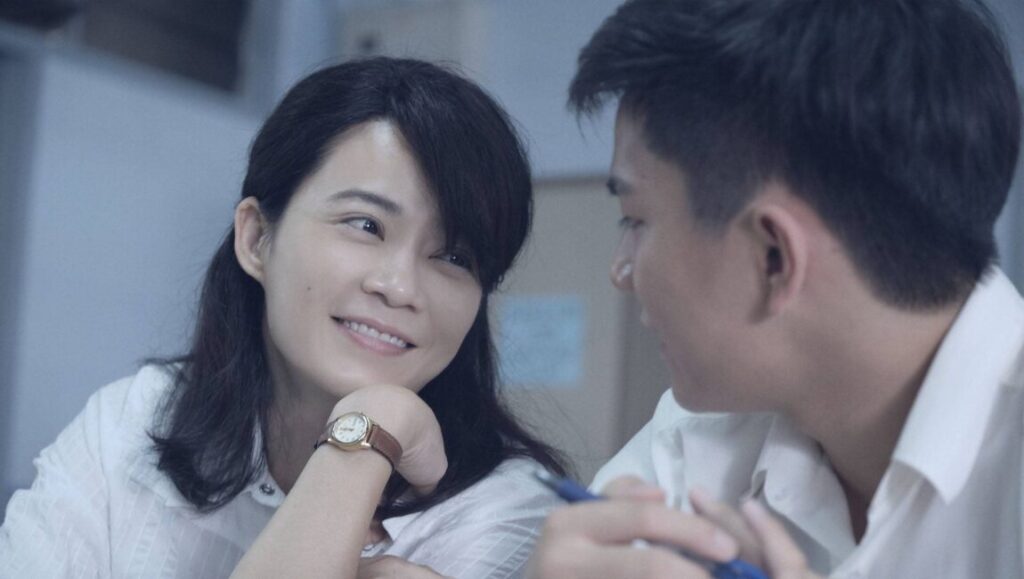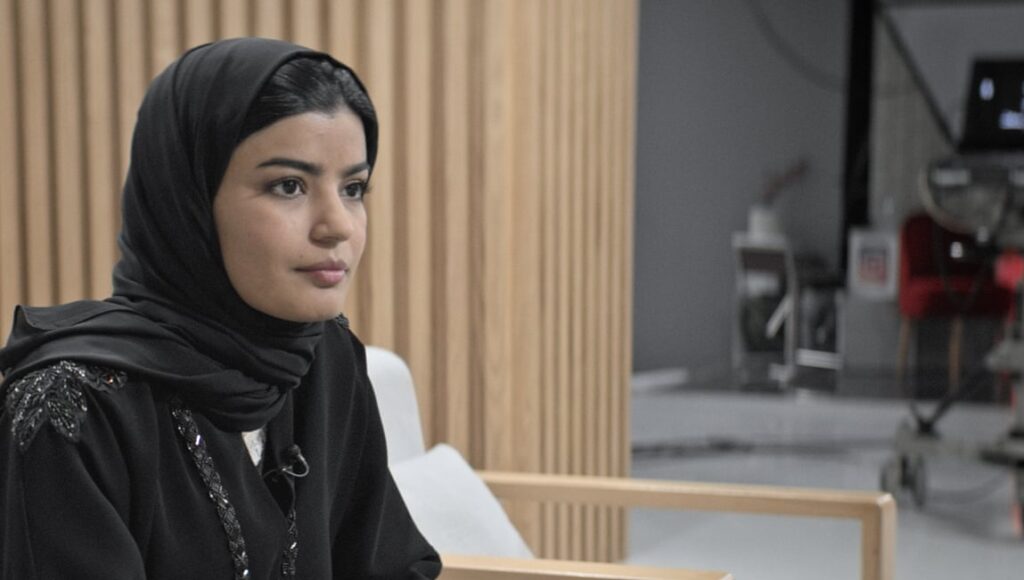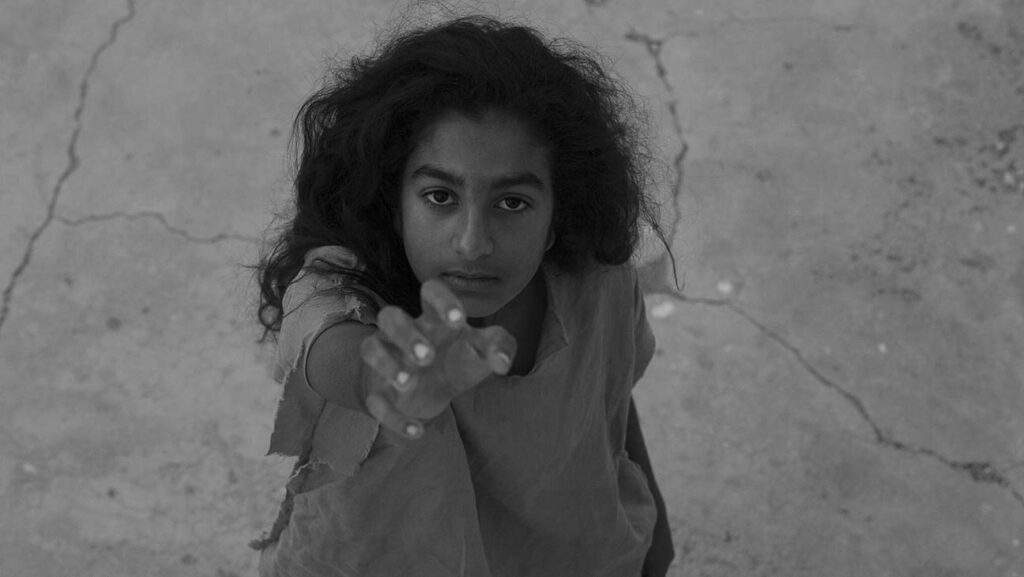Our third and final dispatch from the 2019 BFI London Film Festival is offers thoughts on one of the upcoming awards season’s biggest players — Marielle Heller’s A Beautiful Day in the Neighborhood — as well as a litany of small, international fare, including: 2019 fall festival circuit regulars The Cave, Wet Season, The Cordillera of Dreams, and The Perfect Candidate; Gabriel Mascaro’s Neon Bull follow-up, Divine Love; and a pair of deep oddities, one from a known quantity of bizarro cinema — Werner Herzog’s Family Romance LLC — and one from an international newcomer — Shahad Ameen’s Scales. Make sure to visit our recent Toronto Film Festival and New York Film Festival coverage for takes on the many LFF films we’ve already covered, and plenty more fall festival thoughts.
A Beautiful Day in the Neighborhood
While last year saw the legendary children’s TV entertainer Fred Rogers re-enter the public consciousness, with the release of Morgan Neville’s hit documentary Won’t You Be My Neighbor?, Marielle Heller has swiftly followed that up with a big-screen dramatization of the man’s educational legacy. Although the overarching sentiment of A Beautiful Day in the Neighborhood concerns the power of Rogers’ values, it is not necessarily his story. Based on the article by journalist Tom Junod, here named Lloyd Vogel (Matthew Rhys), who is assigned to write a magazine profile of Rogers (Tom Hanks) for Esquire, the film details how meeting the star helped him cope with his own strained relationship with his father. A little overwrought and incident-heavy, the confluence of personal issues Lloyd has going on is a bit much, to the extent where you feel as invested in the film’s emotion as just worn down. While Rhys’ permanently fixed expression is that of a man liable to break down at any moment, Neighborhood’s tearjerking elements give Rogers’ renowned emotional intelligence the opportunity to change Lloyd’s life for the better. As the embittered man being ground down by the pure compassion, Lloyd’s arc is a fairly simple one, yet it works for what Neighborhood says about looking into one’s childhood and recognizing the reality of our decisions. As in Won’t You Be My Neighbor, there are no suggestions of Rogers’ character beyond his evasiveness, particularly when questioned about his past. It’s interesting that this is the second film in as many years to dig into his apparent selflessness and the second to ultimately accept this at face value. One thing that both Rogers films appear to agree on is that the most informative pathway into his psyche lies in the content of the episodes themselves, and surely you would struggle to find someone unwilling to accept their significance in confronting difficult topics with such pure sincerity. Neighborhood itself is overly sincere, but it lands most of what it’s going for, crafting a bittersweet tale of catharsis that will likely speak to many. Calum Reed
Divine Love
Gabriel Mascaro‘s Divine Love comes at a timely moment for Brazil. Recently-appointed President Jair Bolsonaro, a strong proponent of “traditional” family values and himself a former member of the Social Christian Party, embodies a similar ideology as the film’s 2027 dystopic cultural landscape. The narrative centers on Joana (Dira Paes), an administration worker who deals with the finalization of divorces, but who also attempts to help mend these broken marriages by introducing couples to a cult named Divine Love, which uses sex and biblical teaching as a stimulant for strained relationships. Of course, the film also reflects more familiar, technology-specific dystopian tropes, set in a world where detectors in shops and public buildings reveal your marital and pregnancy status as you walk through them. In this way, Mascaro’s film speaks to current anxieties about how our personal data is constantly being harvested for supposed ease of use, and plays up the dangers of allowing such information to become public knowledge.
A lack of privacy leads to social stigma — in this case, of unmarried, divorced, or infertile people — and Divine Love suggests that we may be becoming more judgmental of those less able or willing to hold down relationships. It’s fine thematic territory to explore, but where Joana is concerned there’s frustratingly little to hold onto, as she is so distinctly single-minded as to be difficult to care about or find depth in. Her ongoing fertility issues should make her a relatable, even sympathetic, character, yet Mascaro paints her as shrewish, self-righteous, and open to ridicule. While vaguely comedic in its satirization of marriage and religion, there’s an off-putting contemptuous undertone to Divine Love. Given Mascaro’s caution about moving toward such a dangerously fixed position on commitment and relationships, it’s an understandable approach to take, but it doesn’t allow much room for empathy to develop. And the introduction of a bizarre evangelical plot point designed to test Joana in the film’s final third feels both ill-considered and underdeveloped. If Divine Love feels dramatically dissatisfying and frustratingly open-ended (and it does), the best that can be said of it is that it at least provides viewers with a novel look at how institutional conventions may continue to be shaped in a 21st century increasingly and frighteningly reflective of such neo-traditional renewal. Calum Reed
Family Romance LLC
Taking as his subject the Japanese company Family Romance LLC, director Werner Herzog returns to offer a work widely labelled as ‘strange’ by the media that renders the line between real and artificial indistinct. Titled as it is — Family Romance LLC, after the company — the film plays out through a series of fragmented scenes picked from the over 300 hours of footage that Herzog himself took while following the company’s proprietor, Yuichi Ishii, during his time at work playing various roles for families and others. The story that binds all of these together is the role that Ishii is hired to play by a single mother: filling in for her husband, he takes the role of father to her woebegone 12 year old daughter and visits a number of tourist sites while prying into her feelings towards her mother. Apart from that, Ishii is also seen playing the role of an employee at a train station, prostrating himself in shame — in an amusing display of a very Japanese problem — when a train leaves 20 seconds early so as to take the blame off the real culprit. It would seem that if the company’s operations were limited to that of family member replacement or some other such emotional/therapeutic stand-in that Herzog would have crafted a functional and well-developed social commentary on the nature of services in contemporary society; obviously that isn’t the case, and so whatever might be drawn out of this vein only appears muddled and indeterminate. This is further complicated by the visual grammar used which seemingly replicates that of a student film with boring, inexpressive shots composed by Herzog fumbling around next to the actors with a handheld camera. But even taken as it is, Family Romance LLC shouldn’t be considered a total misfire. Towards the end we come to understand that the company’s methods and regulations (that the real is only replaced with a stand-in, not a copy; just an actor that still maintains their self while performing a role) don’t allow members to “love or to be loved,” thereby revealing the line between business and family that had been kept hidden till this point. Thus, a contradiction is made between the company’s modus operandi and the potential their work does for allowing the copy to become supplanted by the real for the renter. Now the company is given a sinister edge and their practices brought into question before, finally, the film concludes with Ishii’s return home to his real family. It’s clear that he too has begun to wonder if the real is that much different from the fake. Sam Redfern
Wet Season
Following the success of Ilo Ilo, which won the Camera d’Or at Cannes in 2013, Anthony Chen has made a significant comeback with his sophomore feature Wet Season. Chen maintains his authorial signature through his sharp observation of domestic issues (fertility, ageism, adultery), while situating his story within Singapore’s broader sociopolitical climate (the Singapore-Malaysia dispute, the fading of the Chinese language, and the bureaucracy in the nation’s education system). Following his role in Ilo Ilo, the magnificent Yann Yann Yeo plays Ling, a sensitive educator trying to strike a balance between her IVF treatments and her filial duty to her paralysed father-in-law (Yang Shi Bin), who requires constant care. After she discovers that her husband Andrew (Christopher Lee) is cheating on her, she becomes trapped in an intractable relationship with her student Wei Lun (Koh Jia Ler). Chen’s minimalist film develops its tension through a well-structured and steadily-paced story, augmented by Yeo and Koh’s nuanced performances. He uses an abundance of natural light to invigorate his portrayal of quotidian life, and foregrounds the complexities of each character, particularly during the shocking moment when Ling’s intimacy with Wei Lun goes beyond the contract between teacher and student. The twist might initially seem to arrive out of nowhere, but apart from developing Wei Lun’s attempts at first love, it serves as a kind of revenge on his parents’ lack of parental responsibility. When Ling comforts Wei Lun in a tropical rain by telling him to get used to his situation, the door closes on his hopes for a space of love and affection. But the scene also opens up an unexpected new threshold for Ling’s life by hinting at a possible pregnancy. Wet Season is a boldly expressive tale enmeshed in the matrix of gender, race, and class in contemporary Singapore. Wentao Ma
The Cave
Since the Syrian Civil war began in 2011, there has been no shortage of documentaries about the plight of the nation’s people, the most memorable among them being Silvered Water, Syrian Self-Portrait (2014) and Feras Fayyad‘s own Last Men in Aleppo (2017). Consider The Cave, Fayyad’s latest capsule of a war-torn state, as a testament to those great works. Essentially a wartime artefact intent on documenting the government’s assault on human rights, the film profiles a hospital built into a cave within Syria’s isolated suburb of Gouta and the female manager at the centre of it. “Let’s keep smiling for the children. That’s all we can do,” Dr. Amani says, as she wades through the literally cavernous hospital she runs, having been thrust into a position of great importance. As she’s a 30-year-old woman, things aren’t easy for her. A man who can’t get access to his medicine berates her for being in charge, telling her she should stay at home. It’s a minor problem for her in the grand scheme of Syria’s desperate plight, but it’s clear that others also feel that way. The sense of impending doom is palpable, and there is little doubt that, eventually, the war will catch up with the hospital workers. The Cave is edited accordingly, ramping up the severity of the attacks as the detailing the film unfolds: It goes from a harrowing moment in which Amani goes to her office to sob after meeting with a woman whose son was killed by a bomb, and culminates in a scene where children hurt by chemical weapons are admitted into the hospital. “How can I hold back the tears while watching humanity being destroyed right in front of me?” Amani asks, visibly broken by what she has seen. Films like The Cave will be valuable in years to come, when a war such as this has run its course and been consigned to the history books. Fayyad’s brave, bold filmmaking gives us an inside look at a living nightmare, revealing the distressing ordeal of a people betrayed by their own ruler. Calum Reed
The Perfect Candidate
Haifaa Al-Mansour, whose 2012 feature debut Wadjda was the first film completely shot in Saudia Arabia (and became the nation’s first submission at the Oscars) returns with another look at patriarchal prejudice in The Perfect Candidate, the story of a female doctor who turns to politics. Living in a suburban town somewhere near Riyadh, Maryam (Mila Al Zahrani) bids to become the local council representative in order to fix the rundown road leading to her clinic, but this stirs up controversy among the many townsfolk whom consider her unsuitable due to her gender. “People won’t succeed if their chief is a woman,” one of Maryam’s elderly patients barks at her from his hospital bed. It’s a sentiment echoed within her own community, where she’s seen as a troublemaker for even trying to be successful in either medicine or politics. Al-Mansour clearly feels compelled to call attention to the issues Muslim women face in Saudi Arabia, particularly the lack of ownership over their own lives and futures. Maryam is a progressive example of someone unwilling to accept the status quo, but, as a result, her path is an uphill struggle. The Perfect Candidate addresses the necessity of conflict in achieving change — although it also wisely suggests that battles often have to be fought on your opponents’ terms. Her self-made electioneering provides an insight into the cultural makeup of the region, as the campaign trail leads to a fashion show exhibiting fun styles of traditional Muslim dress. As in Wadjda, the approach to social realism is a little cuddly; there’s never the implication that Maryam is in any real peril from being so outspoken. (Indeed, the film will likely receive the mildest certification possible.) Disappointingly, there’s also a cloying scene in which a previously hardened, reactionary figure champions her cause, which rings completely false. These are minor foibles, though. Even if Al-Mansour plays to an audience she knows is already on her side, The Perfect Candidate is still telling a story that ought to be told. Calum Reed
The Cordillera of Dreams
The Cordillera of Dreams is the third and final film in the unofficial trilogy directed by Chilean director Patricio Guzmán, preceded by the critically acclaimed Nostalgia for the Light and The Pearl Button. All centered on events during Pinochet’s dictatorship from various points of view, these films use metaphorical elements to speak to the importance of those events and why it’s essential that they not be forgotten. The cordillera metaphor that Guzmán employs here — linking the lingering effects of the nation’s violent coup with traces of past cataclysms in the bedrock of a mountain — doesn’t entirely work. But the film compensates with a large amount of footage of historical protests during the dictatorship, shot by a Guzmán’s friend, who marvels at the technological advances that allow him to fit 1,200 hours of footage in a hard drive, something that would’ve been unthinkable back in the 1980s. Throughout the film, offhand moments confront the horrific past and the marks it leaves on the present, while some particularly sharp talking heads offer insight into the present sorry state of Chilean neoliberal society. Given the existence of two (superior) previous films, it’s in such moments that The Cordillera of Dreams finds its strongest reason for being. Jaime Grijalba Gomez
Scales
Saudi Arabian director Shahad Ameen‘s Scales has to be a contender for one of the oddest films at this year’s festival. This black-and-white, folklorish drama set in Oman offers insight into a strange village custom which stipulates that a daughter in every family must be sacrificed to a mythical sea maiden. Scales revolves around a young girl named Hayat (Basima Hajjar), whose father could not go through with the act of sacrificing her as a baby. Twelve years later, the town elders insist the girl wade out to sea herself to finally be taken by the maiden, but she refuses to do so. While this low-budget cultural curio has a unique aesthetic style, it doesn’t sufficiently develop its concept, missing opportunities to discuss the wider implications of this upheaval of tradition. (The film doesn’t offer any perspective on Hayat’s parents and siblings.) Eventually, the lack of dialogue in Ameen’s largely visual approach to storytelling becomes a frustrating weakness. Echoing films such as Whale Rider (2003), Scales delves into the importance of breaking free of custom, though it’s unrelentingly somber in its depiction of a quiet, meditative moment of transition for this secular group — hardly a positive, rabble-rousing descendant of that film. Ameen does not champion Hayat as a catalyst for change, and we don’t get enough of a connection with her to fully appreciate her journey. Instead, the focus — however aloof and impersonal — is on the inability of those around her to process this change. At only 75 minutes, Scales can’t help but feel underdeveloped and slight, although it does contain enough distinctive elements to suggest that its filmmaker might have something greater up her sleeve. Calum Reed






Comments are closed.